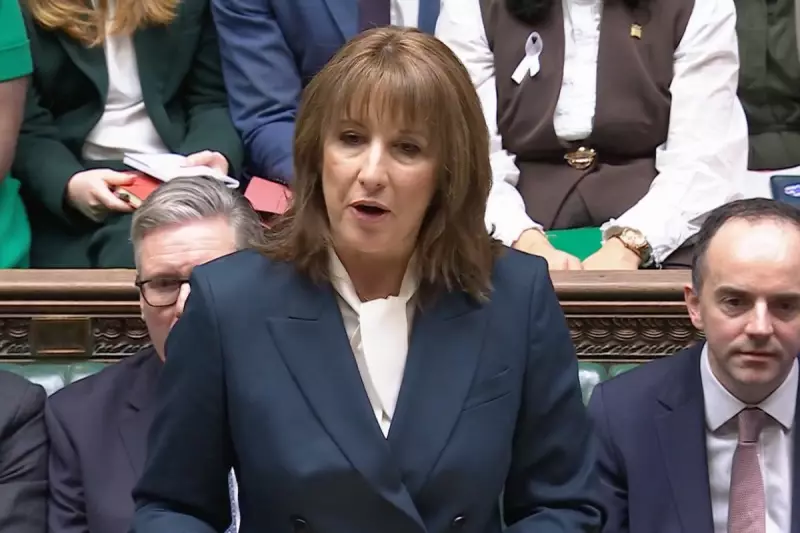
In an extraordinary turn of events, Chancellor Rachel Reeves unveiled her highly anticipated Budget today, moments after the Office for Budget Responsibility published its response in what she described as a "deeply disappointing" leak of her entire fiscal plan.
Economic Forecasts and Tax Measures
The Chancellor confirmed £26 billion worth of tax increases in her Commons statement, aimed at addressing Britain's struggling public finances. This substantial tax package comes on top of £40 billion in tax rises announced last year, pushing the overall tax burden to a record 38 percent of GDP by 2030-31.
Despite the controversy surrounding the OBR's premature publication, Reeves pressed ahead with her statement, revealing that the measures would leave her with approximately £22 billion in fiscal headroom.
Key Tax Changes
The Budget introduces several significant tax reforms that will affect millions of households across the UK:
Income Tax Threshold Freeze: Personal tax thresholds will remain frozen for an additional three years until 2030-31, a move expected to drag 780,000 more people into paying basic-rate tax and 920,000 into higher-rate brackets by 2029/30.
Pension Contributions: From 2029, pension contributions exceeding £2,000 per year made through salary sacrifice schemes will be subject to national insurance contributions for both employers and employees, generating an estimated £4.7 billion in revenue.
Mansion Tax: Properties valued over £2 million will face a new annual property tax starting from April 2028, with charges ranging from £2,500 for homes worth £2-2.5 million up to £7,500 for properties valued at £5 million or more.
Electric Vehicle Charge: A pay-per-mile system for electric cars will be introduced in 2028-29, with battery electric vehicles charged 3p per mile and plug-in hybrids 1.5p per mile.
Sugar Tax Expansion: The existing sugar tax will be extended to include pre-packaged milkshakes, lattes, and sweetened yoghurt drinks, while the threshold for the levy will be reduced from 5g to 4.5g per 100ml.
Cost of Living Support
Alongside the tax increases, the Budget includes several measures designed to support households facing financial pressure:
Two-Child Benefit Cap: In a significant policy shift, the government will scrap the controversial two-child benefit cap at a cost of £3 billion by 2029-30, benefiting approximately 560,000 families with an average increase of £5,310.
National Living Wage: The rate for workers aged 21 and over will increase to £12.71 per hour, representing a 4.1 percent rise that will boost gross annual earnings for full-time workers by around £900.
Transport Measures: The fuel duty freeze will be extended for another year, while rail fares will be frozen for the first time in three decades instead of rising with inflation.
Economic Outlook
The OBR's leaked forecasts present a challenging picture for the Labour government, with economic growth predictions downgraded for most of the current parliamentary term. Despite upgrading this year's growth forecast from 1 percent to 1.5 percent, subsequent years show weaker performance than previously expected.
Growth projections have been revised downward from 1.9 percent to 1.4 percent in 2026, and similar reductions apply through to 2029. The forecasts also indicate that both inflation and unemployment will be higher than anticipated in 2025 and 2026.
The Budget represents the Chancellor's attempt to balance fiscal responsibility with support for struggling households, though the unprecedented OBR leak has undoubtedly cast a shadow over what was meant to be a carefully staged political event.





